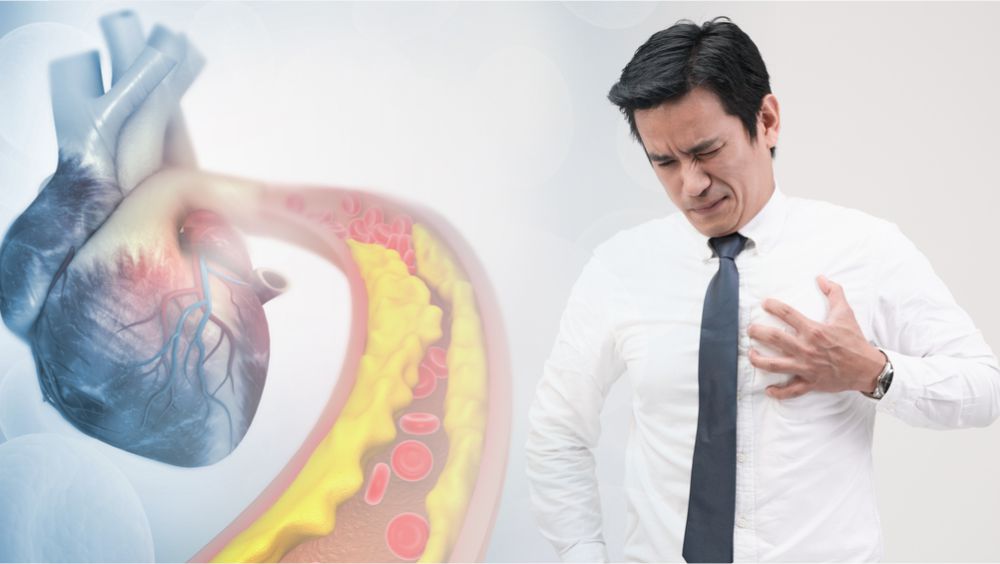What is cholesterol, exactly?
Cholesterol is a lipid that is found in the body. It's a waxy, fat-like substance created by your liver naturally. It's required for cell membrane development, the production of some hormones, and the absorption of vitamin D.
Because cholesterol does not dissolve in water, it cannot pass through your bloodstream on its own. Lipoproteins are produced by your liver to aid in the transport of cholesterol.
Lipoproteins are fat and protein-based particles. Cholesterol and triglycerides (another form of lipid) are carried through your bloodstream by them. Low-density lipoprotein (LDL) and high-density lipoprotein (HDL) are the two main types of lipoprotein (HDL).
When your blood contains too much LDL cholesterol, you have high cholesterol (cholesterol transported by low-density lipoprotein). High cholesterol, if left untreated, can lead to a variety of health issues, including heart attack and stroke.
The majority of the time, high cholesterol has no symptoms. It's for this reason that you should have your cholesterol levels examined on a regular basis. Find out what cholesterol levels are ideal for your age.
LDL cholesterol, also known as "bad cholesterol," is a kind of cholesterol that is produced by the liver.
LDL (low-density lipoprotein) is commonly referred to as "bad cholesterol." It transports cholesterol from your liver to your arteries. LDL cholesterol can build up on the walls of your arteries if your levels are too high.
Cholesterol plaque is another name for accumulation. Plaque can restrict your arteries, reduce blood flow, and increase your risk of blood clots. A heart attack or stroke can occur when a blood clot plugs an artery in your heart or brain.
Over one-third of American adults, according to the Centers for Disease Control and PreventionTrusted Source, have high LDL cholesterol levels. Learn how to measure your LDL cholesterol levels.
HDL cholesterol, also known as "good cholesterol," is a kind of cholesterol that is produced in the body.
HDL (high-density lipoprotein) is often known as "good cholesterol." It aids in the removal of LDL cholesterol from your body by returning it to your liver. This reduces the buildup of cholesterol plaque in your arteries.
HDL cholesterol levels that are healthy can help reduce your risk of blood clots, heart disease, and stroke.
A different form of lipid is triglycerides.
Another form of lipid is triglycerides. They're not the same as cholesterol. While cholesterol is used to produce cells and certain hormones, triglycerides are used as a source of energy.
When you consume more calories than your body can utilize straight away, those calories are converted to triglycerides. Triglycerides are stored in fat cells. Triglycerides are also circulated through your bloodstream through lipoproteins.
Triglyceride levels can rise if you consume more calories than your body can utilize on a daily basis. This could put you at risk for a variety of health issues, including heart disease and stroke.
A simple blood test can be used by your doctor to determine your triglyceride and cholesterol levels.
Having your cholesterol levels checked is a good idea.
The American Heart Association recommends that anyone over the age of 20 have their cholesterol levels evaluated at least once every four to six years. If you have a history of high cholesterol or other cardiovascular disease risk factors, your doctor may advise you to have your cholesterol levels checked more frequently.
A lipid panel can be used by your doctor to check your total cholesterol, LDL cholesterol, HDL cholesterol, and triglyceride levels. The total amount of cholesterol in your blood is known as your total cholesterol level. It has both LDL and HDL cholesterol in it.
Your doctor will diagnose you with high cholesterol if your total cholesterol or LDL cholesterol levels are too high. When your LDL levels are too high and your HDL levels are too low, you have high cholesterol.



